Islamabad, Pakistan: The love affair of the ruling elite with the public is over now as the consumers of electricity would not get any relief in September electricity bills from the superclass that owns the majority of Independent Power Producers (IPPs) that produce nothing but get the payment from public pockets.
The PMLN government offered relief for the bills of July-August 2024 to electricity consumers out of money already paid by the consumers as taxpayers because relief money came out of the public exchequer instead of accounts of IPPs. However, this jugglery was only for two months and money again went to the bank accounts of IPPs. Is it not interesting?
In Pakistan, Independent Power Producers (IPPs) are privately owned companies that generate electricity using various sources including thermal (oil, gas, coal), hydroelectric, wind, and solar; and then sell it to the national grid under contractual agreements with the government.
The sitting government accepted in Parliament that some IPPs have collected billions of rupees from the government of Pakistan without generating electricity due to wrong contracts. Wrong contracts were made by the IPPs by ruling elites but the consequences of which are being borne by the public and the government of Pakistan that bridge the balance through circular debt system.
Compared to Bangladesh and Vietnam, IPPs have installed wind plants of the same capacity four times more expensive in Pakistan, through over-invoicing that was not possible without the help of bureaucracy and the politicians.
Despite coal reserves in Pakistan, IPPs are dependent on imported fuels such as high-speed diesel and imported coal for power generation.
Costly electricity is being generated due to these initiatives of IPPs that do not want to spend money on maintenance so use the cleanest source for producing the electricity and furthermore receive billions of rupees from the government of Pakistan for the maintenance of the plants owned by the private IPPs.
IPPs did not generate as much electricity as they imported fuel and also received billions of rupees in subsidies from the government. Moreover, IPPs are reluctant to undergo forensic audits despite the immense insistence of the Government of Pakistan.
Surprisingly, the government of Pakistan is also bearing the insurance of IPPs itself. The government of Pakistan also bore the expenses of setting up IPPs initially. The government of Pakistan also provided facilities to IPP owners in terms of tax duty and insurance. Despite bearing all expenses, the plants will not be owned by the Government of Pakistan on the expiry of the contract period. Sources
Most of the owners of the IPPs are local elites. Still, deliberately the contracts were made in the name of some foreigners and this was not possible without the help of civil bureaucracy and the political elite when contracts were signed.
What is to be done?
Due to heavy payments to IPPs, the government is facing serious difficulties in investing in other important sectors. IPPs have earned hundreds of times their cost, so contracts should be reviewed.
The National Assembly was informed recently that the existing Power Purchase Agreements allow the Independent Power Producers (IPPs) to recover their fixed costs including the debt servicing through Capacity Purchase Price which is based on the availability of plant for generation.
Moreover, variable Operation and Maintenance (O&M) cost is linked with actual generation. As a result of the devaluation of PKR, Capacity and Energy Payments are substantially increasing, putting a burden on the consumers.
About the steps being taken by the government in this regard, the House was told that the Prime Minister had constituted a Task Force to identify and oversee the implementation of structural reforms in the power sector of Pakistan, to reduce electricity tariffs for the consumers as well the financial burden of the industry borne by the federal government.
Further, it is also mandated to establish an efficient, liquid, and self-sustaining competitive market.
Details of Capacity Payments made to IPPs recorded/accounted for during the last two years;
IPPs Capacity Payments in FY 2022-23 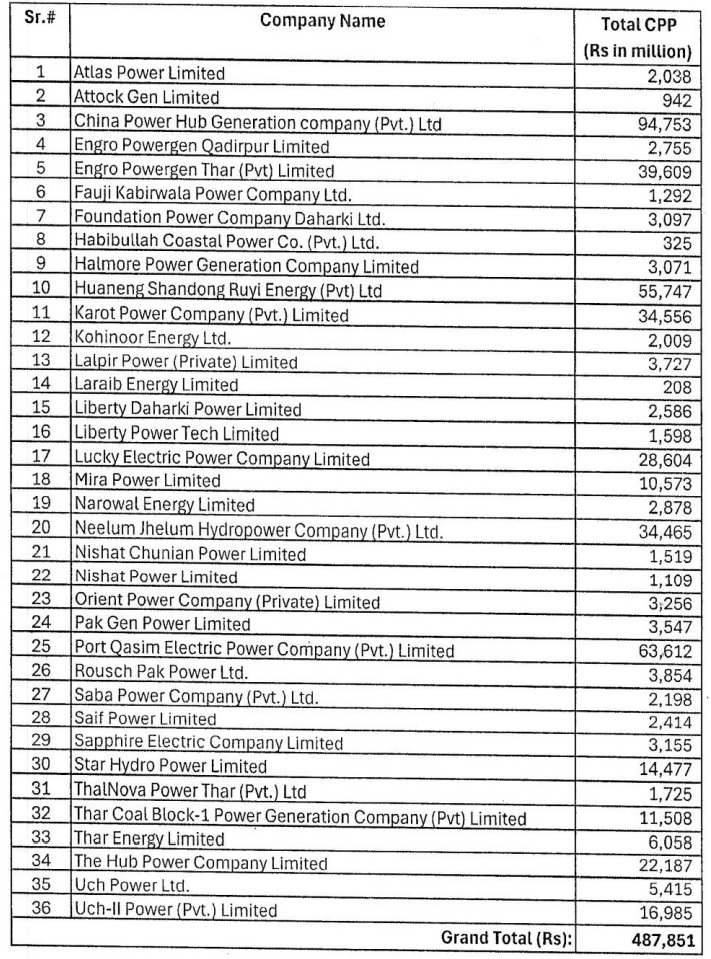 In FY 2023-24
In FY 2023-24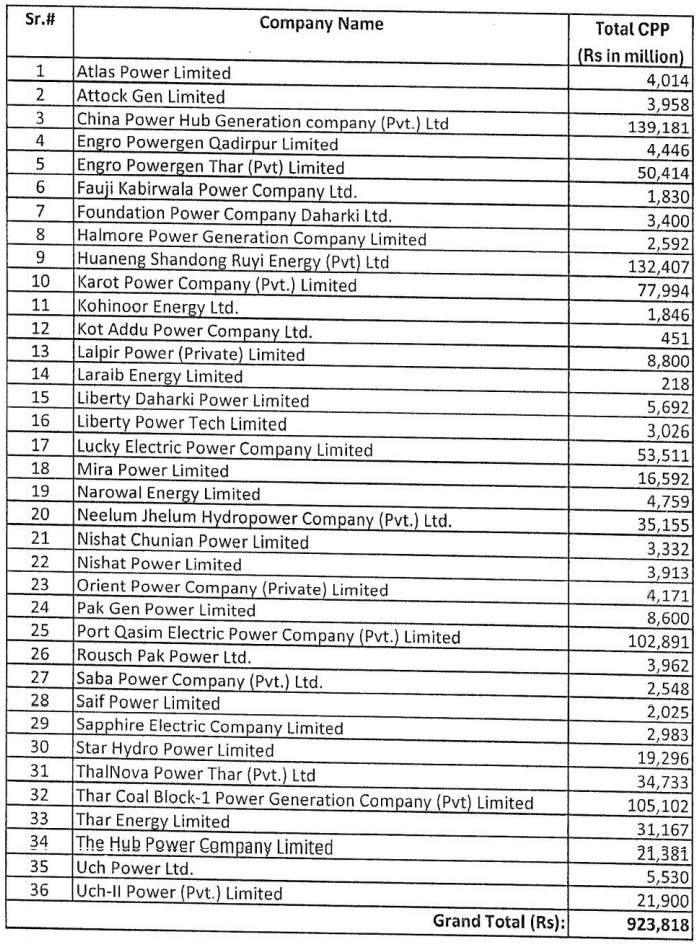
Details of such IPPs which have received more than 50% to 70% of their payments, in terms of capacity payments during the last two years;
In FY 2022-23  In FY 2023-24
In FY 2023-24 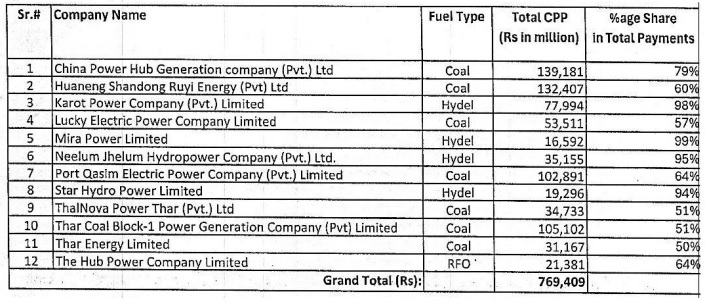
Name of IPPs that either operated on around 10% or did not remain operational but were paid capacity charges during that period.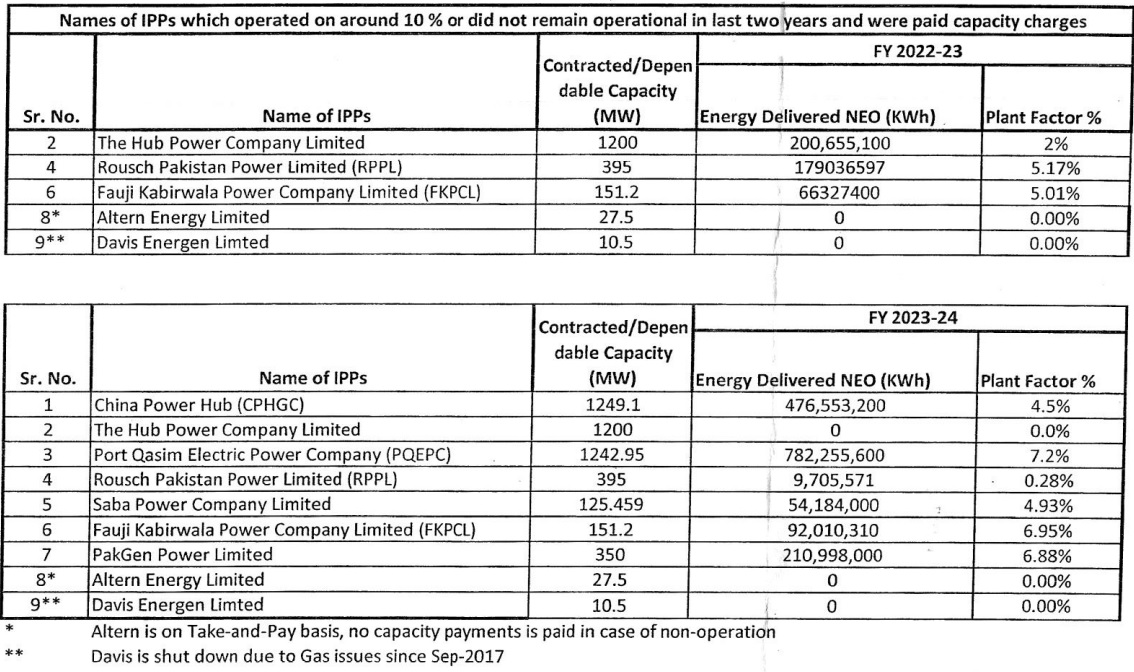
The first three highest (in descending order) and the lowest per KW cost of electricity being generated by private sector IPPs having more than 50 MW capacity;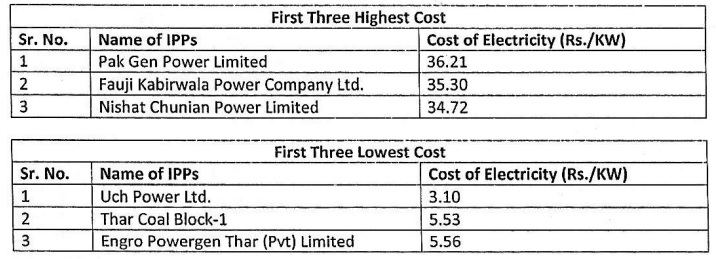
IPPs Capacity Payments
Note: The above-given data was shared with the Senate on September 13, 2024, by the Minister for Energy (Power Division) Sardar Awais Ahmad Khan Leghari.
